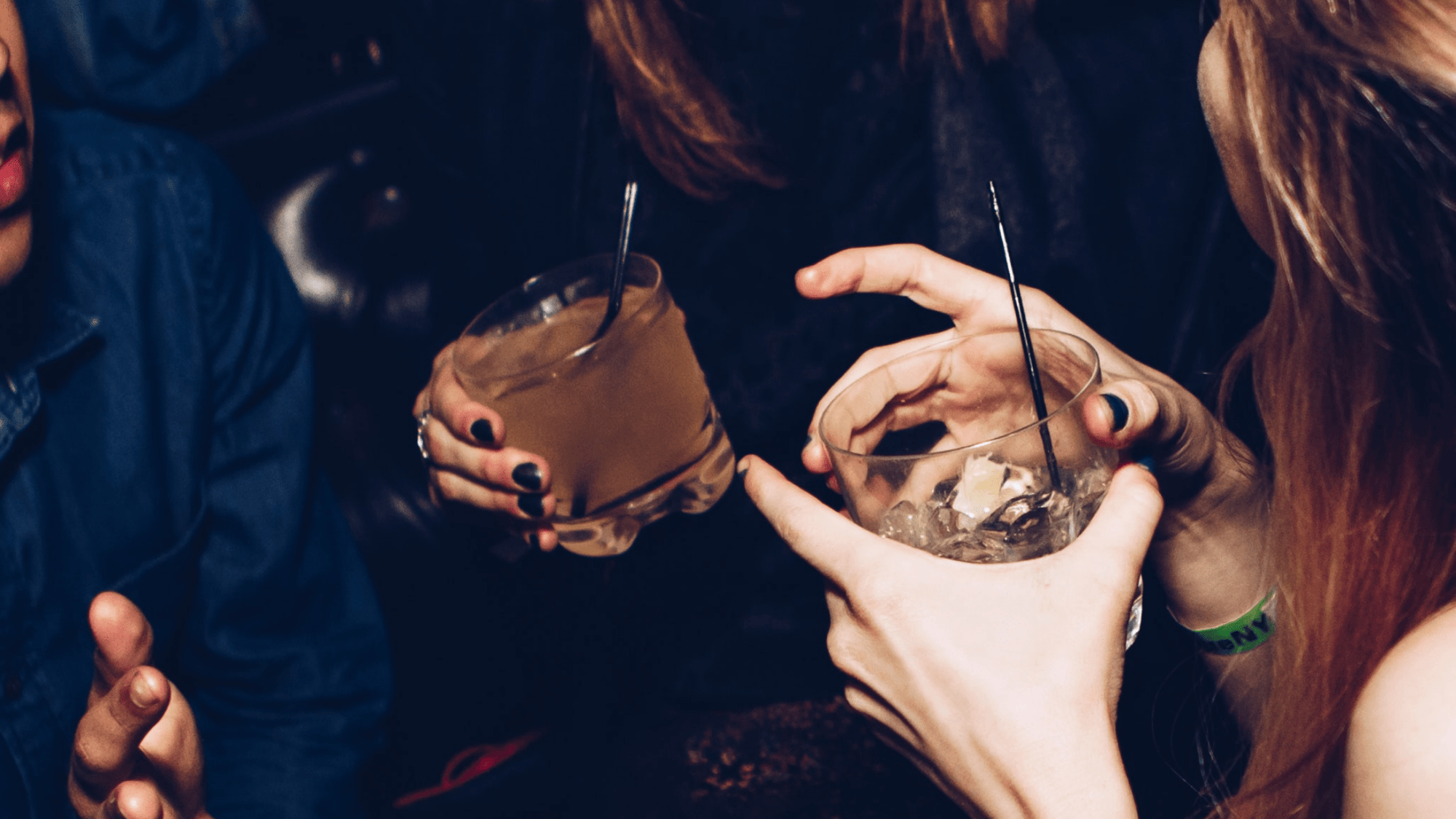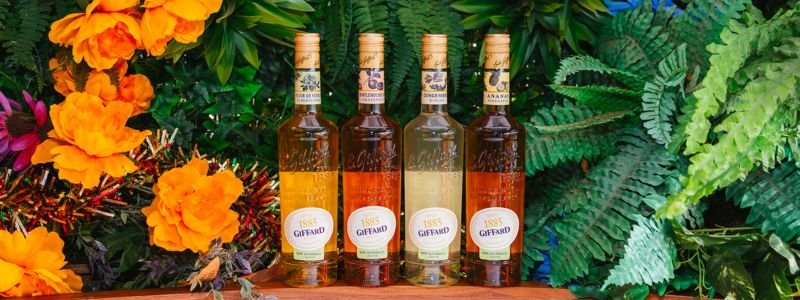‘If you have social anxiety, your first two drinks don’t actually count because they just make you turn into a normal person.’ That’s what they say on Twitter.

But when you go from ‘sober’ to ‘wasted’ in no time, skipping the tipsy/buzzed stages and making a brief stop at ‘drunk’ at best, your first two drinks are also your last two drinks. Years go by, the Earth's started spinning faster, but one thing remains the same: wherever you drink, you get as messy as any college grad in Cancun.
You always skip the pre-game, and the extent to which you can't hold your liquor fascinates people. At some point you probably got tired of apologizing for your inability to keep up with your fellow imbibers and just embraced the reputation of someone who can't learn to handle their booze. In other words, a lightweight.
Let’s delve into the nature of this phenomenon to find out what causes some people to get drunk faster than others and how to fix that, if at all possible.
What does being a lightweight mean?
So what does being a lightweight mean alcohol-wise? The dictionary definition of a lightweight is ‘someone who becomes drunk very easily.’ The Urban Dictionary’s take is a tad more harsh though: it defines a lightweight as ‘a person who gets drunk without much alcohol consumption, ruins the nights of their friends because they are often pathetic and emotional drunks and lose any ability to function on their own after just one beer.' Ouch!
After you take a sip, alcohol, specifically ethanol molecules, land in the stomach, where they get absorbed through the digestive tract, especially through the small intestine. From there, alcohol goes to blood, and from blood, in turn, it goes to organs – mainly to the liver and brain. And that's where all the trouble begins.
As we said, individual differences in that journey can cause people to act more or less drunk with the same amount of alcohol consumed. Let’s start with the conventional alcohol absorption rate factors on which people usually blame their lightweightedness.
Alcohol absorption rate factors:
Gender:
Women tend to have less blood and more fat than men, and fat requires less blood than muscles. The lower blood volume with the same amount of alcohol accounts for results in different alcohol blood concentration (BAC).
Hormones:
Hormone levels also affect the body’s ability to process alcohol, and women will experience higher BACs drinking their regular amount of alcohol right before menstruation. Bloody hell...
Content of Stomach:
Of course, the content of the stomach impacts its ability to absorb whatever you pour into it. If you just had dinner, you might only get a quarter of the impact from the same drink on an empty stomach.
Weight:
Pretty straightforward – the lighter you are, the more of a lightweight you'll be.
Fatigue or Illness:
If you are sick, there is a good chance you are dehydrated. This will result in a higher BAC. Dehydration can also make your liver less efficient at eliminating alcohol.
Liver’s alcohol processing enzyme:
Genetics, genetics, genetics. Everyone's ability to metabolize ethanol is different due to differences in our liver's enzymes. So maybe the ability to drink and not get drunk is not something you can develop, but rather something that's predetermined?
Now that we’ve reviewed the basics, it’s time for a plot twist. In fact, all of the above does not matter that much, as we're going to name the final boss – the chief culprit of your drunken misfortunes.
Its name is GABA.
What is GABA?

GABA, or Gamma-aminobutyric acid, is an often overlooked protein receptor in our brain that affects our reaction to alcohol. This receptor is located on cells in the cerebellum, and just like all people are different, our GABA receptors vary in sensitivity. When it’s activated, it suppresses the firing of brain cells, which leads to balance issues, stumbling, slurred speech, and reduced social inhibitions. While for some, the receptor takes a long time to be stimulated, lightweights have receptors that are a bit more dramatic: they overreact to even the smallest amount of alcohol. See? It’s not you, it’s THEM!
Surprisingly, whatever your heavyweight friends have to say, from the academic and medical standpoint, such diva behavior is the golden standard for GABA. Insensitivity of receptors that ‘good’ drinkers ultimately pride themselves in can lead to binge drinking and alcoholism, while you, a lightweight, are less prone to becoming an alcoholic. According to the researchers at Washington State University, increasing the receptor’s sensitivity could prevent people from drinking too much.
Drinking tips & tactics
However optimistic that might sound, your genetic advantage, as you perfectly know, comes with responsibility. This sensitivity requires you to double-think and plan your night out ahead, unless you want it to be over in 40 minutes. Here are some tactics to help you stay sober longer:
Tips for staying sober longer:
Take a Nap
Yes, if there’s a very drunk night out on the horizon, taking a nap should be your pregame. It will lessen the sedative effect alcohol has on your system and help you stay sober a little longer.
Water
Drink water in between alcoholic beverages. Alcohol is absorbed by the body at different rates depending on (amongst other things) the ABV of your stomach contents, so if you drink a glass of water for every alcoholic drink, that's going to dilute things, helping to slow inebriation down.
Yeast
Active dry yeast, commonly used as a leavening agent in baking, contains a group of enzymes called alcohol dehydrogenases (ADH). ADH, which is found naturally in humans and other animals, assists in the breakdown of alcohols that would otherwise be toxic to the body.
While we wouldn’t recommend making yeast your go-to pregame meal, in certain cases, it can be the lesser evil. Since active dry yeast contains ADH, if we consume it before drinking, the enzyme will be able to attack the alcohol in the stomach first—before it gets into the bloodstream and ultimately the liver. Mix the yeast with some yogurt and eat it before you start downing drinks.
Oil Supplements
Bring supplements like borage oil, sunflower lecithin, pantethine or any other oily pill that can envelop the walls of the stomach and prevent alcohol from absorption and just take it after your first drink.
Choose your poison wisely
If hard seltzer is your hard limit, it’s nothing to be ashamed of. But don’t rely on ABV only. Perhaps, you do the math and decide to go with wine, as it only has around 13% ABV and is supposed to be three times lighter than rum or vodka which both stand at 40% ABV, however, wine can turn you into a complete wreck much faster than its stronger counterparts. Turns out, there is a “sweet spot” when it comes to alcohol content, and wine rests soundly in that region. At around 10–13%, consuming such beverages, especially the more aromatic, refreshing and possibly non-dry wines tend to be what is called in Greek “sweet-to-drink” (γλυκόπιοτα), what an American speaker might call “smooth.” They are delightful to down, and being so pleasant to down means it’s easier to drink rapidly. And as alcohol is absorbed into your bloodstream faster, you will most likely feel drunker.
Activated charcoal
If none of the above seems to work and you’re already seeing double, make sure to have a few activated charcoal pills with you – they’ll absorb excessive alcohol toxins and negate the effect which that third Negroni’s had on your body.
Try non-alcoholic alternatives
This may seem obvious, but try to not drink at all or at least moderate your drinking. We highlighted the best NA drinks in each category to ensure you can skip the booze and still enjoy the night. Those NA options will satisfy your alcohol cravings of any kind, as we have excellent options for wine, beer, liquors, and even pre-made cocktails right at your fingertips. Just scroll to find what’s right for you, and rest assured — next time you drink you will be magically able to predict the outcome and know for sure that no genetic tricks have power over you. Indulge in a vibrant, non-alcoholic drink and make sure no one would dare to call you a buzzkill.
Parting words: next time your friends start lightweight-shaming you, remember that the fairies bestowed a precious gift upon you. You’re not a ‘bad’ drinker who can’t hold their liquor, it’s just that your GABA receptors are too sensitive. You’re a genetically predetermined, economically sound drinker, and there’s absolutely no need to partake in the dubious competition on building tolerance to alcohol.


